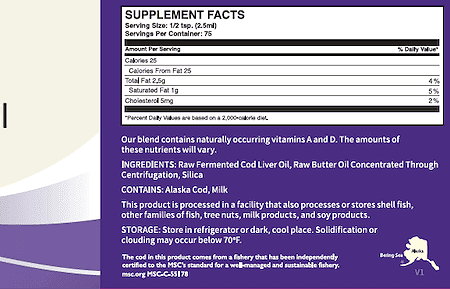Gut health foods are important and have a far more significant influence on your health and well-being than just simply digestion and your meals.
The relationship between the stomach and your health is intricate, but much of it is due to the microorganisms there.
There are many bacteria in the digestive system, referred to as the "microbiome," consisting of beneficial, neutral, and harmful bacteria.
The various types of bacteria have far-reaching impacts on various health issues.
The more helpful microbes and the fewer harmful ones in your system, the better.
A healthy balance of gastrointestinal tract bacteria implies you’ll have a strong immune system, be at a healthy weight, have good skin, and even enhanced mental well-being.
At the same time, imbalances are associated with various health issues, including obesity, anxiety, irritable bowel syndrome, food intolerances, allergies, asthma, eczema, and infections.
A healthy stomach-friendly diet is based on a high fiber, balanced and diversified diet.
Yogurt, kimchi, sauerkraut, whole grains, papaya, pineapple, and other foods are beneficial to the digestive system.
Best foods for gut health
Live yogurt
Yogurt made from live yogurt contains probiotics, live microorganisms that have health benefits.
They’re known as "friendly" bacteria since they aid in maintaining a healthy digestive system.
They’re produced naturally in the body, but they can also be found in foods and supplements.
They assist in balancing the good and bad bacteria in the stomach by expelling the undesirable microorganisms.
Consume natural, unsweetened (preferably organic) yogurt instead of commercial varieties to minimize sugar and sweeteners.
If you can’t have dairy, try coconut or soy yogurt.
Fermented foods
Fermented foods like sauerkraut, kimchi, kombucha, tempeh, miso, and natto are also excellent sources of probiotics for maintaining a healthy digestive system.
Probiotics can benefit digestion in general and common digestive problems like IBS, constipation, and bloating.
Probiotics have been found to decrease abdominal bloating and burps in people with IBS and alleviate pain and provide general comfort.
Whole grains
Whole grains are high in dietary fiber, essential for a healthy digestive system.
The typical Western diet is low in fiber, and most individuals would benefit from increasing their intake.
Swapping refined grains for whole grains is an excellent method to boost fiber intake.
A high-fiber diet improves digestion, prevents constipation, lowers the incidence of numerous diseases (including digestive system disorders and others), and has a favorable influence on digestive system balance.
Papaya & pineapple
Papaya and pineapple are high in enzymes, which may aid the body in breaking down fats and proteins.
These enzymes may help with moderate digestive issues such as bloating and gas and mild laxative effects.
Another excellent source of dietary fiber is berries and fruits in general, which can aid in maintaining the digestive system healthy.
Fruits taken on an empty stomach or before meals are more easily digested than those consumed after a meal.
Asparagus
Asparagus is high in prebiotics, nourishing the bacteria living in the intestines.
Prebiotics are carbohydrates or fibers partially digested by the body since they cannot break them down.
Here, friendly bacteria are fed, causing them to multiply and increase, outnumbering the undesirable organisms.
These prebiotics, in particular, has been proved in research to promote a beneficial microbe strain called bifidobacteria.
Other high-quality prebiotic foods include chicory, artichokes, onions, garlic, leeks, and bananas.
Ginger
Ginger has been used as a digestive treatment for thousands of years.
It’s a digestive tonic used to treat indigestion, nausea, and stomach cramps by relaxing spasms in the digestive system, reducing inflammation, and providing a physical barrier against irritants.
It also contains anti-nausea features, and it has been found to improve the natural intestinal movements that assist with digestion.
Turmeric
Turmeric has been discovered in studies to help with indigestion and IBS symptoms.
Turmeric has been used to treat inflammation for hundreds of years.
It protects the stomach from problems involving inflammation, including reflux esophagitis.
There’s also some evidence that it might aid those suffering from inflammatory bowel disease.
Flax Seeds
Flaxseeds (Linseeds) have a mild laxative action and can treat constipation.
They’re a bulk-forming laxative type that grows in size when combined with water.
The greater the stool volume in the bowel, the more frequently it contracts and expels.
The usual dosage is one tablespoon of either whole or powdered seeds in a full glass of water twice daily.
According to some research, flaxseed also appears to have beneficial impacts on the microbiome.
Broccoli
Broccoli and other veggies are other excellent sources of dietary fiber, essential for proper digestive function.
Broccoli has been found in research to improve the balance of stomach microorganisms.
Broccoli and other cruciferous veggies (cabbage, cauliflower, kale, Brussels sprouts, collards) include natural plant chemicals called glucosinates that the colonic bacteria can break down in positive effects.
Water
Water is required for the smooth passage of material through the intestines.
Water with fiber helps to reduce transit time by keeping food moving through the digestive system more quickly.
Shorter transit times produce less hazardous by-products in the stomach and cleaner gut ecology.
The length of time that meal spends to pass through the colon, on the other hand, affects the amount of harmful bacteria breakdown by-products that may be produced and raises the risk of digestive and other health issues.
Foods for gut health
Your digestive system requires the proper balance of bacteria to process your food and avoid sickness and inflammation.
Your digestion is deeply connected to your physical and emotional well-being.
It also impacts your mental, weight, blood sugar, and liver health in addition to your general well-being.
Probiotic foods like whole grains, bananas, greens, onions, garlic, soybeans, and artichokes feed the beneficial bacteria in your digestive system.
Foods good for gut health
Food begins to be digested as soon as it enters the body through the mouth.
The food is processed through the digestive system, breaking it into smaller, more consumable components.
Different foods may assist at various points in the process.
Some support the stomach, while others assist with the intestines.
In general, fiber is essential for digestive health.
If you’re not used to eating fiber regularly, start with soluble types like oatmeal, apples, and bananas.
You may add one serving every four to five days to increase your fiber intake.
However, it’s possible that increasing your fiber intake too rapidly might be harmful to your digestive system.
On the other hand, water helps to soften stool and make it easier to pass by combining it with fiber and adding bulk to feces.
Conclusion
Digestive systems are essential for a variety of health functions.
Many researchers have shown that a disrupted microbiome can lead to a wide range of chronic illnesses.
The ideal approach to keep your microbiome healthy is to consume a variety of fresh, whole foods, especially fruits, vegetables, legumes, beans, and whole grains.
However, many studies have verified gut health foods and their health benefits.


























